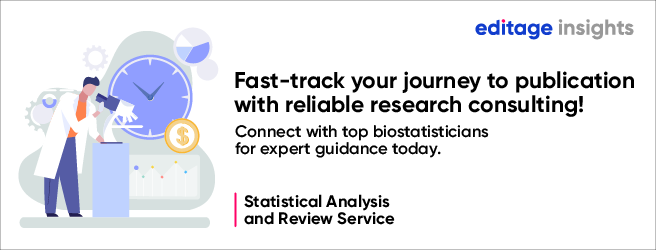5 Statistical terms that biomedical researchers need to use carefully

As a biomedical researcher, it is crucial to use statistical terms carefully to avoid misinterpretation of data. In this blog post, we will discuss five terms that researchers need to use with caution, to ensure that readers accurately understand their findings and are not misled.
1. Normal
The term "normal" in statistics refers to a normal distribution, also known as a Gaussian distribution. A normal distribution is a bell-shaped curve that describes the probability distribution of a continuous random variable. However, the term "normal" is often used loosely to mean "typical" or "usual." It is important to avoid this usage as it can be misleading and lead to misinterpretation of data. For example, if we say that a patient's blood pressure is normal, we could mean that it is within the range of values that are typical of the patient’s age and sex, or we could mean that the values follow a Gaussian distribution. These are two very different interpretations, and it is crucial to be clear about which one we mean.
2. Random
The term "random" is often used to mean haphazard or arbitrary. However, in statistics, the term has a specific meaning. A random sample is a sample that is selected from a population in such a way that every member of the population has an equal chance of being selected. For example, if we say that we selected patients randomly for a clinical trial, we give readers the impression that we used a random sampling method (often involving the use of computer-generated random numbers). If we say that we assigned patients randomly to treatment groups, we imply that we used a computerized randomization procedure.
3. Average
The term "average" is often used to mean the arithmetic mean, which is the sum of a set of values divided by the number of values. However, “average” is also used to mean “mediocre”. Thus, it’s best to avoid terms like “The biomarker had average sensitivity” and instead say something like “The mean sensitivity was XYZ” or “The biomarker had low sensitivity”.
4. Significant
The term "significant" is often used to mean important or meaningful. However, in statistics, the term has a specific meaning, in terms of statistical significance (i.e., a p value that is below the alpha). It is important to use the term "significant" correctly to avoid confusion. For example, you can say that a treatment had a “statistically significant” effect on clinical outcomes or that this effect was “clinically meaningful.”
5. Correlation
The term "correlation" in statistics refers to the relationship between two continuous variables. However, correlation does not imply causation. It is important to be clear about inferences we are drawing from a correlation analysis. For example, if we say that there is a positive correlation between alcohol intake and asthma severity, we mean that we found that participants with higher alcohol intake had more severe asthma. On the basis of a correlation coefficient alone, we can argue that asthma management programs should include a component that addresses alcohol intake, but we cannot make a statement like “alcohol consumption should be limited to prevent asthma” because we are then implying that alcohol consumption causes asthma.
In conclusion, as a biomedical researcher, it is important to use statistical terms carefully and accurately. By doing so, you will ensure that your data are accurately interpreted and your findings are reliable.
Looking for expert advice in reporting your statistical analysis? Editage's Statistical Analysis & Review Service can assist you in each stage of your research and publication journey.
Comments
You're looking to give wings to your academic career and publication journey. We like that!
Why don't we give you complete access! Create a free account and get unlimited access to all resources & a vibrant researcher community.

Subscribe to Conducting Research










